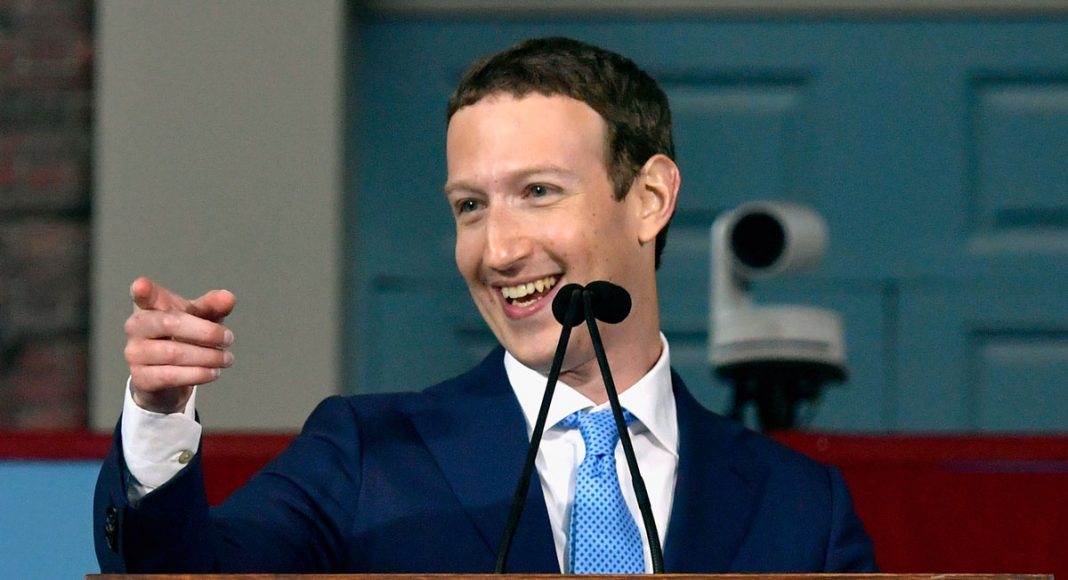Mark Zuckerberg, he promises you, is not campaigning at the moment. If you haven’t heard, Zuckerberg is traveling through all 50 states as an effort to learn and listen to various folks about their lives and worries over the future. It is part of Zuckeberg’s annual lifestyle challenge he sets for himself. Other years have famously included learning Mandarin and only eating meat he killed.
Previous iterations of the Annual Zuck Lifestyle Challenge have focused on personal improvement, the gains focused only on his own health and skills. These stateside adventures, however, have caused some healthy suspicion because what Zuckerberg is doing reminds so many in the press of a presidential campaign. With possible 2020 election rumors swirling, it seems dubious Zuckerberg aims to connect with fellow Americans just for “spiritual connectivity”—though that would be very tech bro of him—or whatever bullshit excuse the most influential man in tech might provide.
Since the 2016 election, others in Silicon Valley have attempted to demonstrate a greater participation politically and socially in their communities and nationwide. They still care is the message. No need to disrupt Silicon Valley’s idyllic brand of saving humanity through tech just yet.
Zuckerberg’s mission falls in line with that, though his is supposedly different because he’s breaking out of his bubble. On some level, this is worthwhile. Zuckerberg’s personal history swims in privilege, the boy wonder able to avoid the banal terrors of suburban struggle and inner-city coldness. The son of a mother psychiatrist and father dentist, he attended the uber-exclusive Phillips Exeter Academy instead of public high school, and had the luxury of dropping out of Harvard.
So learning about people from flyover states and backcountry America is a constructive endeavor for Facebook’s CEO. But that’s the problem—it’s more invaluable an experience for Facebook’s CEO than Zuckerberg himself. Dismissing the results temporarily, Facebook played an instrumental role in the 2016 election. Many have questioned the tech company in how they will respond to monitoring their product and curbing the virality of #fakenews and false reports. To do that, Zuckerberg must better learn of the people using his product and their tendencies.
Former Ticketmaster CEO Nathan Hubbard delivered a useful tweetstorm regarding Zuckerberg’s lifestyle challenge/campaign that isn’t a campaign. Here’s condensed paragraphs of what he wrote:
Zuck woke up on Nov 9th acutely aware that FB had facilitated a new shift he didn’t foresee or understand; that’s terrifying to a founder. He’s the head of product. So he’s ventured out into the world beyond his bubble to do field research and inform how FB will evolve again. Yes, these pictures we are seeing of Zuck meeting people look like outtakes from Forrest Gump meets The 40 Year Old Virgin…
[…]
We have rightly vilified founders of late who could not personally learn, grow and evolve to lead their companies and products forward. So I admire a founder who, however Machiavellian, cares enough to understand the people using the platform he created.
Zuckerberg is selling himself in the way presidential hopefuls might do, but he’s selling Facebook’s brand instead. For if its founder and CEO can show the compassion and (buzzword alert) connect with various people from walks of life, why can’t you do the same on Facebook? Just within the past week or so Zuckerberg has visited a Chicago public school, ate dinner with Somali refugees, and visited the Pride Festival in Omaha.
It’s moments when Zuckerberg visits a truck stop in Iowa that raises eyebrows. In his obligatory Facebook update, he explained what a truck stop was, because as he clearly didn’t, you might not know what a truck stop’s really about. “It’s like a small city where truckers on long trips can take a break, get something to eat, get a haircut, do laundry, get their truck washed — or their dog washed! — and even go to the dentist.”
Isn’t this all so fun? Isn’t this so humanitarian? (Shhh. Don’t tell Zuck truck drivers are routinely exploited and exhausted. Don’t want to dirty his Silicon Valley-branded cape on his way out.) But how is he helping any of these people? What impact is he truly having? Any? It seems painfully obvious Zuckerberg is using social media in the way so many of us do—to paint a prettier, filtered picture of what’s really going on. Still a good look for Zuckerberg and Facebook, but a fake one at that.
I guess you could say Zuckerberg is on the campaign trail, but he isn’t after your votes. He wants your likes.


